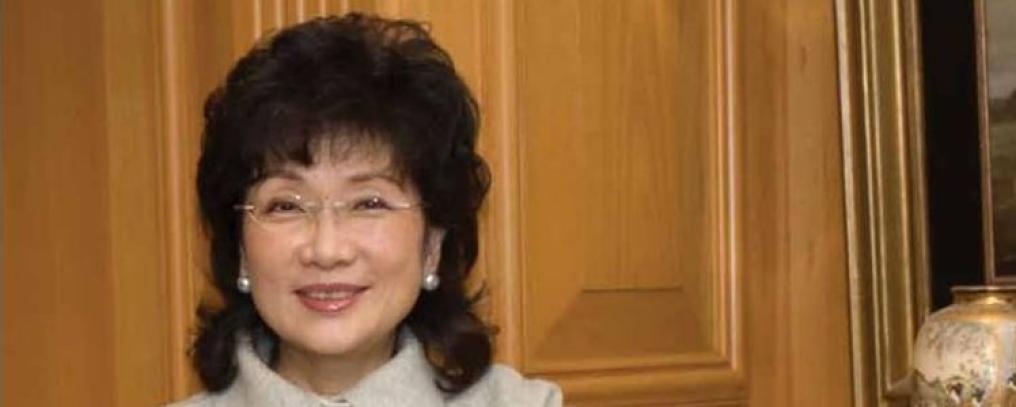There is only one way to really understand the PRC business environment and that is to live and work in mainland China. Zoe Chan So Yuen, Law Programme Director, HKU SPACE, looks at an increasingly popular option for gaining work experience in the PRC – secondment.
A recent International Monetary Fund report suggests that China's economy will become the world's largest within the next five years. Company secretarial professionals (CSPs) in Hong Kong do not need such statistics, however, to know that the future of professionals here in Hong Kong will depend greatly on their exposure to, and knowledge of, the PRC business environment.
Many Hong Kong professional bodies, the Hong Kong Institute of Chartered Secretaries (HKICS) among them, have devoted increasing resources to training their members in the PRC business and regulatory environment, but a true understanding of that environment can only really be gained by spending time working in the PRC.
That is why increasing numbers of professionals are considering secondment opportunities in the PRC. A recent survey in mainland China reveals that there are over 300,000 foreign employees seconded annually to job assignments in the PRC. That amounts to an almost 200% growth when compared with the official statistics a decade ago.
A secondment assignment in the PRC can be an incredibly enjoyable and rewarding experience – it is also a great way to build a solid and broad foundation for a professional career. There are several important practical issues that need to be considered before committing to a secondment in the PRC, however. What legal, cultural and ethical challenges will you face in the mainland? How should your secondment contract be structured? What will be your tax liabilities and can your secondment work experience earn you CPD points?
This article addresses these practical concerns and offers CSPs advice on how to get the best out of secondment arrangements in mainland China.
What is secondment?
Secondment is the temporary 'loan’ of an employee by a home organisation to a host organisation – referred to in this article as the PRC affiliate (PRCA) – for a prescribed period of time. In the case of PRC secondments, CSPs do not usually have a direct employment relationship with the PRCA, which may be a PRC subsidiary, a mainland branch of a professional firm, or even a client organisation.
The secondment enables employees to boost their exposure to different corporate cultures in mainland China and enhance their knowledge of working in the dynamic PRC business environment. They also learn technical operational expertise, in particular the PRCA's work preferences and priorities, as well as polishing their Mandarin skills. Those unique skills and insights are impossible to accumulate without spending time working in a PRCA on a daily basis.
Tax and employment concerns
The State Administration of Taxation in Mainland China (SATC) has, since 2009, issued notices to local tax offices to examine the tax liabilities of non-resident corporations offering secondment arrangements for overseas employees. The SATC authorities will evaluate whether those employees perform work for the benefit of the PRCA or the overseas legal employer. More importantly, Permanent Establishment (PE) is established under the double taxation treaty signed by the mainland and Hong Kong if the overseas employer is found to provide actual services to its PRCA through seconded staff in mainland China. In this case, the SATC will impose tax liabilities on the relevant CSPs and PRCA.
From an accounting perspective, the SATC will evaluate whether the remuneration of the staff is substantially a service fee or a 'mark-up’ fee in mainland China. The SATC's local tax bureau will assess each case on its own merit to determine whether the secondees’ remuneration will be to subject to enterprise income tax or not.
These taxation matters are further complicated by the PRC Labour Contract Law (LCL). The LCL now requires all mainland Chinese employers to furnish written employment contracts for employees. If staff contracts make no reference to secondment agreements (which effectively govern the de facto employment relationship among the parties concerned), it is highly likely that the secondee's employment contracts will cause difficulties and uncertainties. There might be legal concerns, for example, regarding termination arrangements, fringe benefits and remuneration in the PRC and home jurisdiction. This oversight might even result in the double counting of the salary package and benefits fixed by the PRCA and the overseas employer.
Worse still, the PRCA may encounter difficulties when remitting the remuneration of the secondees to the overseas employer due to foreign exchange controls in mainland China. As stipulated in Hui Fa (2004) No 62, the Chinese affiliate/ PRCA may not be recognised as a 'multinational company’ permitted to remit expatriates’ remuneration abroad. From an accounting perspective, all parties need to determine the facts of each individual secondee's claim and consider if service charges should be booked under the accounts of the PRCA or the overseas employer.
Secondment contracts
Secondment arrangements in the PRC vary a lot and there is no hard and fast rule to determine the appropriate contractual or tax arrangements for each secondee. There are either formal or informal secondment options. Overseas employers should review the secondment contract and/ or assignment letter to ensure that it faithfully reflects the real nature of the secondment and that the arrangement is sufficiently documented. The contractual options include:
- A letter of secondment between the employer and secondee. This is most likely where the secondment is within the same international group, and may include details of the changes to the employee's contract. The employee will clearly need to consent to any changes in the employment terms.
- An agreement between the overseas legal employer and the PRCA, possibly with a separate letter/ agreement setting out employment conditions with the employee. In particular, this should contain the mandatory statutory provisions governing sick leave, leave entitlement, rest days and termination package etc.
- A tripartite agreement between all three parties, namely the overseas legal employer, the secondee and the PRCA.
Typically, paid secondments require formal arrangements and are full-time for a longer period of time. In some cases employers choose to provide secondees with contracts as 'localised expatriates’. Such contracts are designed to give the secondees the same labour and social security insurance protections as those permanently working for the PRCA. However, it should be stressed that any term fixing on such a standardised employment contract may cause conflict as local policies and practices vary in major PRC cities.
Different contribution rates are fixed under various local social security and employees’ insurance regulations in China. There are diverse policies and regulations applicable in different parts of China. For better legal risk management, secondees who make frequent business trips to different parts of mainland China should have a separate contract and be treated as localised employees by the assigned PRCA. In such cases, it is often advisable for the PRCA to conclude an employment contract with the secondees directly so that the secondment arrangement can be implemented locally with greater certainty and practicality.
The table opposite shows some of the implications of whether a service or a secondment agreement is considered

Encouraging secondment opportunities and cross-cultural exchanges
The working environment and corporate structures in the PRC are very different to those in Hong Kong. Of course, there will be cross-cultural, language, and political differences which each secondee will inevitably encounter while working in mainland China. But the secondee's experience will bring benefits to both the overseas employer and the PRCA.
Indeed, secondment can be a valuable part of a talent management process and a vital tool for human resources management. Overseas employers are strongly recommended to grant leave, with or without conditions, for secondees to pursue work experience opportunities. Many international professional firms in Hong Kong are in a good position to offer to their trainees work opportunities in the firm's offices in mainland China.
Due to the substantial educational value of secondment arrangements, it is highly recommended that the secondment should be considered part of CSPs’ continuing professional development (CPD). Any such CPD arrangements will clearly require the support and endorsement of both the employers and the relevant professional bodies. Since secondees will gain new skills and experience which will be invaluable in their career development, professional bodies should accredit secondment arrangements so that CSPs can benefit from working in the PRC and accumulate CPD points at the same time. Furthermore, CSPs should be accredited with CPD points for attending the tailored induction and training for secondment programmes in mainland China and Hong Kong.
There are many precedents overseas for such arrangements – the Law Society of England and Wales, for example, has approved trainee solicitors to work in designated EU international organisations for approved secondment projects and has awarded CPD points for such arrangements. Earning CPD points during secondment creates a strong incentive for professionals to take up secondment opportunities, since it means their professional work is officially recognised and accredited by professional bodies.
Zoe Chan So Yuen, Solicitor ACIS ACS
Law Programme Director, HKU SPACE
The author can be contacted by email: zoe.chan@hkuspace.hku.hk.
SIDEBAR: Secondment checklist
As mentioned in the main article, secondment assignments in the PRC can be a highly rewarding experience both personally and professionally. There are, however, a number of important practical issues which need to be considered to get the best out of a secondment in the PRC. Issues to consider include the following:
- Is the secondment in line with Hong Kong and PRC law? Has independent legal and taxation advice been given to the secondees before confirmation of the secondment assignments?
- What will be the duration of the secondment and the pay arrangements?
- Has a job description and a description of relevant responsibilities among the parties been documented? How, for example, will risks, supervisory and disciplinary matters be resolved? Who will exercise the control and supervision of work over the secondees?
- What will be the place of work – are there travel and mobility issues to be considered?
- Have indemnity insurance and tax issues been provided for? If so, by whom?
- Who will take up the role of the CSP in Hong Kong during his/ her secondment in mainland China?
- How will the secondee's contract be structured – as a service agreement, secondment contract or as a localised employment contract in PRC?
- Will the secondee retain his/ her original contract with the overseas employer? Will there be changes to his/ her employment benefits and remuneration package?
- Will the secondee be able to earn CPD points during his/ her secondment? Will the CPD points be accredited by the professional bodies in both jurisdictions?
- Will there be any reciprocal cross-border CPD accreditations by different professional bodies (for example the HKICS, the HKICPA and the Law Society of Hong Kong)?
SIDEBAR: Cross-border convergence – recent developments
Secondment work arrangements help foster cross-border knowledge and understanding. Recent developments in mainland China and Hong Kong have further integrated the two markets in two areas of particular relevance to company secretarial professionals (CSPs) – the mutual recognition of professional qualifications and the cross-border convergence of corporate governance standards.
-
Professional recognition under CEPA
The Mainland and Hong Kong Closer Economic Partnership Arrangement (CEPA) is a free trade agreement pursuant to which qualifying products and services, companies and residents of Hong Kong enjoy preferential access to the mainland Chinese market. Many of the preferences surpass the concessions made by mainland China upon its accession to the World Trade Organisation and relevant international treaties.
CEPA is a win-win agreement, bringing new business opportunities to the mainland, Hong Kong and to foreign investors. There are welcome changes in the mutual recognition of professional qualifications and other cross-border work issues relating to professional services under the CEPA. In 2003, the Securities and Futures Commission (SFC) and the China Securities Regulatory Commission (CSRC) signed a CEPA-related cooperative agreement concerning the qualifications of securities and futures industry practitioners. In 2004, the Office of the Commission of Insurance (OCI) and the China Insurance Regulatory Commission signed a cooperative agreement on matters relating to Hong Kong residents’ participation in the mainland qualifying examinations for insurance intermediaries. This trend bodes well for the future mutual recognition of CSP qualifications in Hong Kong and mainland China.
It should be added that, as increasing numbers of PRC enterprises are listed in Hong Kong and more PRC businessmen bring IPO activities to Hong Kong, this will further integrate the two markets within the framework of 'one country, two systems’.
-
Corporate governance convergence
China and Hong Kong. The latest amendments to Hong Kong's Corporate Governance Code and associated listing rules issued by the Hong Kong Stock Exchange have accelerated the convergence of corporate governance standards and practices in Hong Kong and mainland China. The Exchange has removed the requirement for board/ company secretaries of companies listed in Hong Kong to be ordinarily resident in Hong Kong. Looking ahead, there will be a great demand for CSPs with specialised knowledge of both the Hong Kong and mainland China market and secondment arrangements (both from mainland China to Hong Kong and vice versa) can help ensure that CSPs acquire direct experience of both markets and business management.
Another change is the new requirement for company secretaries of companies listed in Hong Kong (this applies equally to board secretaries of mainland companies with a listing in Hong Kong) to undertake at least 15 hours of relevant continuing professional training every financial year. This has opened up a huge training market for CSPs’ both in Hong Kong and in mainland China.
It is hoped that regulators and professional bodies will recognise the 'relevant experience' gained in secondments and will endorse such arrangements as a good contribution to CSPs’ CPD training and career development.




